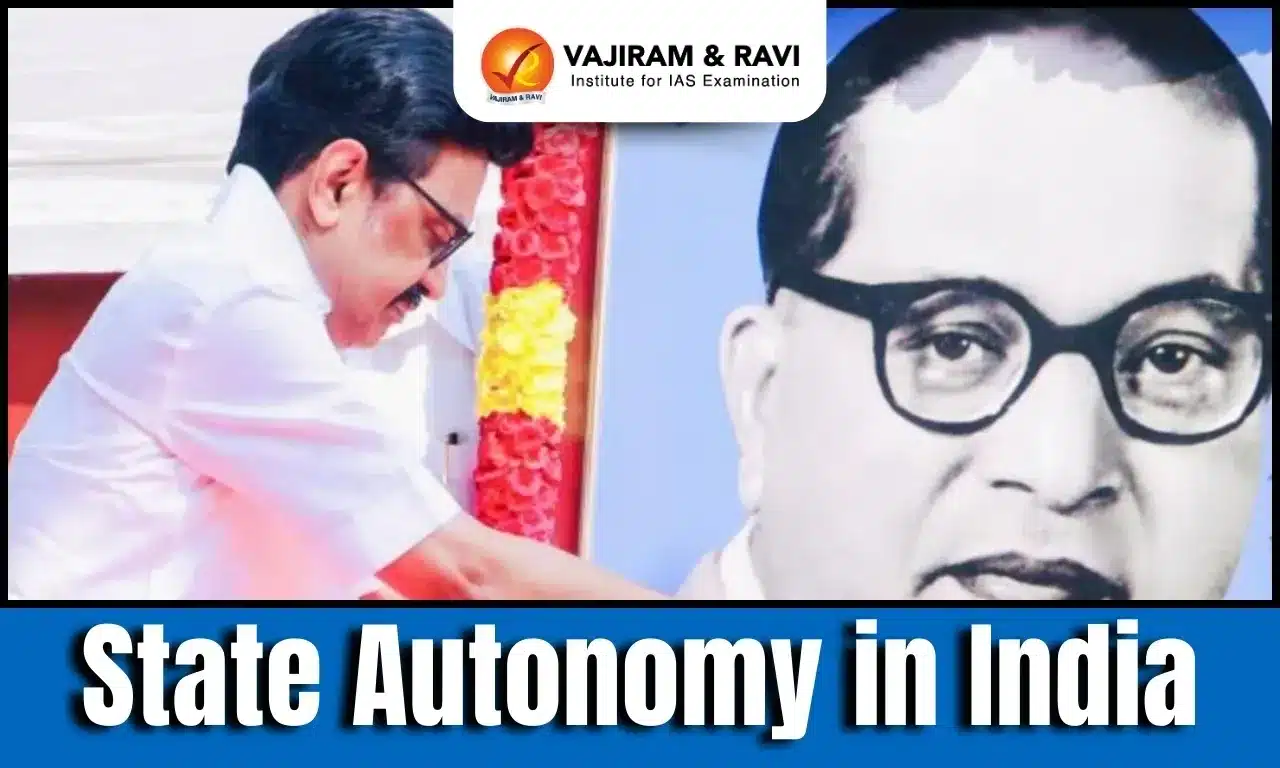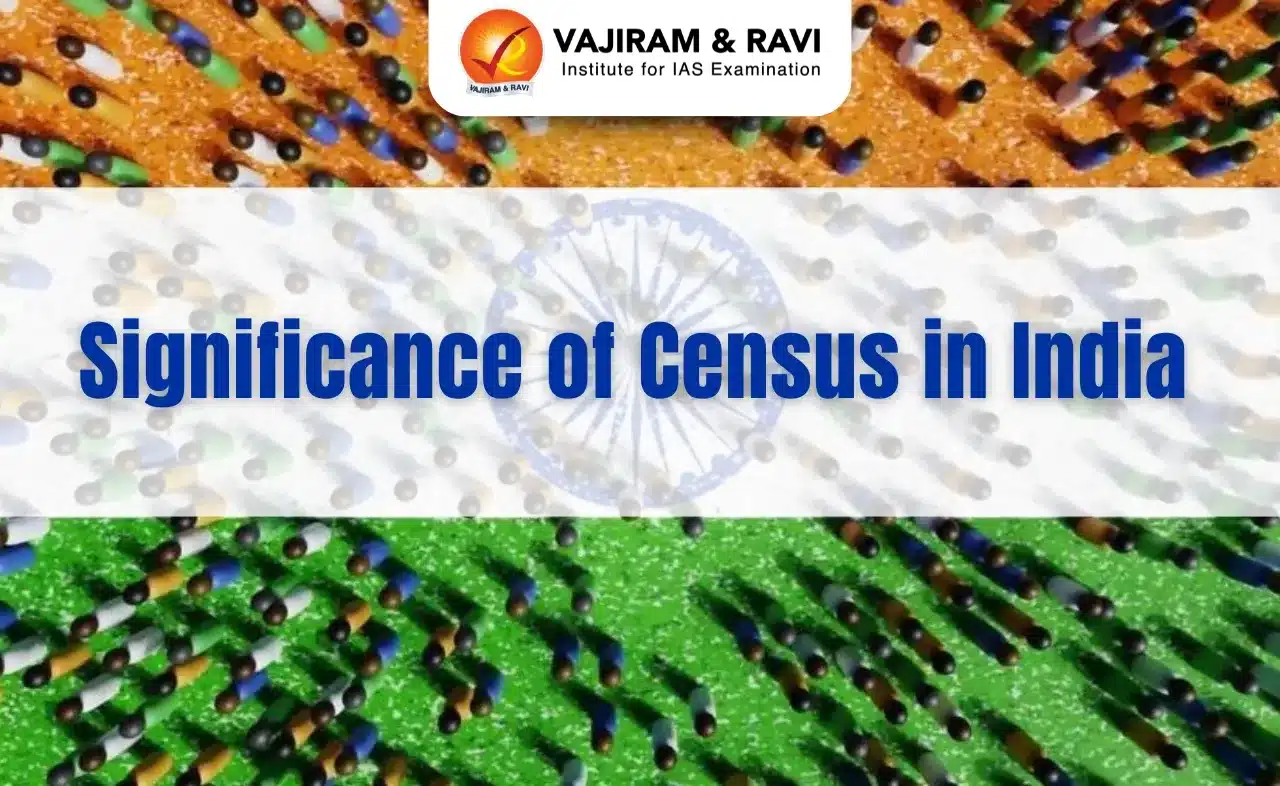What’s in Today’s Article?
- State Autonomy in India Latest News
- Rajamannar Committee’s Observations on Centre-State Relations
- Renewed Push for Federalism
- State Autonomy in India FAQs
State Autonomy in India Latest News
- Citing concerns over the erosion of state powers, Tamil Nadu Chief Minister M K Stalin has set up a high-level committee led by former Supreme Court judge Justice Kurian Joseph to review Centre-State relations and suggest ways to strengthen states’ constitutional rights.
- Nearly 50 years ago, then CM C N Annadurai had formed a similar committee under Dr. P V Rajamannar to recommend measures for maximizing state autonomy without compromising national integrity.
Rajamannar Committee’s Observations on Centre-State Relations
- The Rajamannar Committee noted a growing dominance of the Centre over the States, with state-specific matters increasingly controlled by the Centre, often because the same party ruled both levels of government.
- Though initiated during Annadurai’s tenure, the Rajamannar Committee report was submitted under M Karunanidhi’s leadership to then PM Indira Gandhi.
De Facto Centralisation of States
- The committee argued that although the Constitution appeared federal, its practical implementation had reduced States to mere administrative units of the Centre.
Constitutional Provisions Enabling Central Control
- The report cited Articles 256, 257, and 365. These provisions gave sweeping powers to the Centre.
- The Centre could issue directions to the States and enforce them.
- The committee said President’s Rule was used as a drastic and unprecedented constitutional weapon.
Key Recommendations
- Repeal Article 356 to prevent misuse of President’s Rule.
- Establish a robust Inter-State Council under Article 263 to resolve Centre-State differences through dialogue rather than coercion.
Criticism of Extra-Constitutional Institutions
- The Rajamannar Committee criticised the rise of bodies like the Planning Commission, created by an executive order and not by the Constitution.
Central Control Through Financial Powers
- The committee noted that discretionary grants from the Centre gave it a “whip in its hands,” allowing it to control States through financial dependence.
- It argued that this made the constitutionally mandated Finance Commission irrelevant and reduced States to “suppliants for aid” in their own areas.
Erosion of Federal Balance
- The report warned of a growing “Triple” threat—central planning, massive grants, and party politics—which was steadily eroding the federal structure.
Increasing Central Interference
- The committee observed that the Centre’s frequent involvement in State matters created the impression of an anxiety to exercise overall supervision, undermining State autonomy.
Rethinking the Idea of a Strong Centre
- The Rajamannar Committee challenged the notion that centralisation strengthens India.
- It warned that by taking on too many responsibilities, the Centre risks becoming weak.
- True strength, it argued, lies in restraint and clear focus, not in expansionism.
- Quoting C N Annadurai’s 1967 speech, the report stressed that while the Centre must have enough powers to safeguard India’s sovereignty.
- It should not encroach on subjects like health and education, which do not contribute to national security.
Renewed Push for Federalism
- Half a century later, the Stalin-led DMK government is once again questioning the Centre-State balance, amid disputes over NEET, GST compensation, delimitation, and language policy.
Mandate of the New Committee
- The newly formed committee will review the current legal framework and suggest measures to restore the rights of States within the constitutional setup.
Uncertain Impact
- It remains unclear if New Delhi will act on the new committee’s recommendations, as the Rajamannar Report and later reviews by the Sarkaria and Punchhi Commissions were largely ignored.
A Call for Cooperation
- The spirit behind these efforts echoes Annadurai’s 1967 vision of strengthening Centre-State relations through mutual goodwill and understanding.
State Autonomy in India FAQs
Q1. What is the Rajamannar Committee?
Ans. A 1969 Tamil Nadu panel that studied Centre-State relations and recommended steps to enhance state autonomy without harming national unity.
Q2. Why did Stalin form a new committee?
Ans. Stalin formed a panel to review Centre-State relations, amid disputes over NEET, GST, and language policies, aiming for federal reforms.
Q3. What powers did Rajamannar Committee criticize?
Ans. The committee criticized Articles 256, 257, and 365, which allowed excessive Centre control, reducing States to administrative units.
Q4. What key recommendation did the Rajamannar Committee make?
Ans. The committee recommended repealing Article 356 and strengthening the Inter-State Council to resolve Centre-State issues through dialogue, not coercion.
Q5. Will the new committee’s report be implemented?
Ans. Uncertain. Past reports like Rajamannar, Sarkaria, and Punchhi Commission were largely ignored by successive Central governments.
Last updated on June, 2025
→ UPSC Notification 2025 was released on 22nd January 2025.
→ UPSC Prelims Result 2025 is out now for the CSE held on 25 May 2025.
→ UPSC Prelims Question Paper 2025 and Unofficial Prelims Answer Key 2025 are available now.
→ UPSC Calendar 2026 is released on 15th May, 2025.
→ The UPSC Vacancy 2025 were released 1129, out of which 979 were for UPSC CSE and remaining 150 are for UPSC IFoS.
→ UPSC Mains 2025 will be conducted on 22nd August 2025.
→ UPSC Prelims 2026 will be conducted on 24th May, 2026 & UPSC Mains 2026 will be conducted on 21st August 2026.
→ The UPSC Selection Process is of 3 stages-Prelims, Mains and Interview.
→ UPSC Result 2024 is released with latest UPSC Marksheet 2024. Check Now!
→ UPSC Toppers List 2024 is released now. Shakti Dubey is UPSC AIR 1 2024 Topper.
→ Also check Best IAS Coaching in Delhi






















